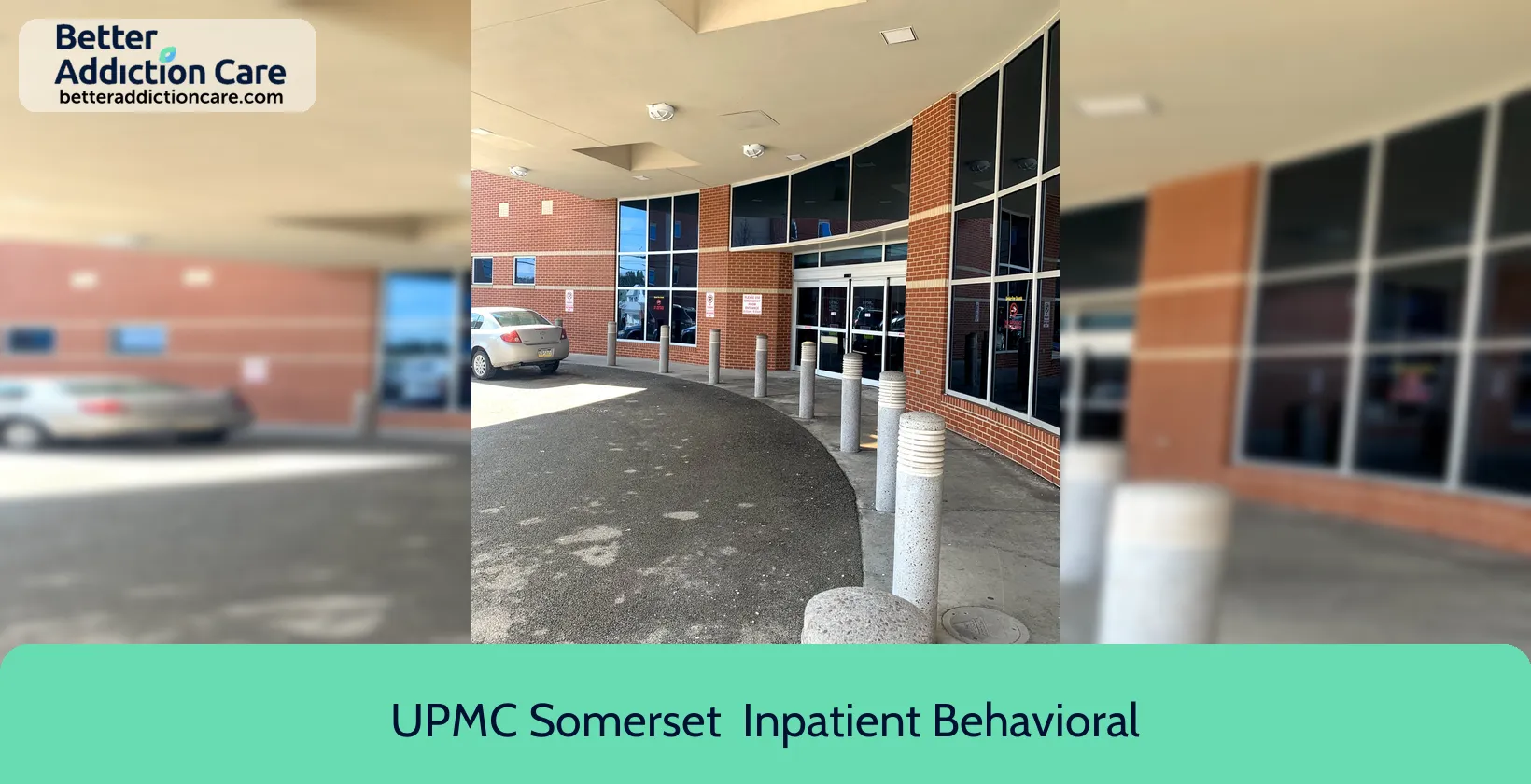UPMC Western Behavioral Health - Twin Lakes

Overview
UPMC Western Behavioral Health at Twin Lakes, situated in Somerset, Pennsylvania, offers a comprehensive selection of addiction treatment services for both adults and adolescents. The center is accessible to individuals at different phases of recovery, as it provides both residential treatment and outpatient services. Cognitive Behavioral Therapy (CBT) is one of the evidence-based approaches that UPMC Western Behavioral Health at Twin Lakes employs to assist individuals in overcoming addiction and regaining control of their lives, as part of its dedication to addressing the intricacies of substance use disorders.
Detoxification and withdrawal management are among the primary services offered at Twin Lakes. These services provide a secure and medically supervised environment for individuals who require assistance during the initial phases of recovery. After detoxification, patients have the opportunity to engage in residential treatment programs that emphasize long-term rehabilitation, which offer them the necessary structure and support for a long-term recovery. There are outpatient services available for individuals who do not require residential care but still benefit from regular therapy and counseling sessions.
Twin Lakes also provides specialized programs for individuals who have been convicted of driving under the influence (DUI). These programs ensure that individuals who have legal obligations related to their substance use receive the necessary treatment and education. The facility offers a compassionate, non-judgmental environment in which all patients are treated with respect and dignity as they strive for recovery.
UPMC Western Behavioral Health at Twin Lakes provides services that are inclusive of all sexual orientations and gender identities, in accordance with UPMC's commitment to inclusivity. The center ensures that the LGBTQIA+ community receives specialized and sensitive treatment that is tailored to their unique requirements by providing LGBTQIA+-affirming care. The clinical team is proficient in the provision of integrated care that is respectful of and supportive of the experiences of LGBTQIA+ individuals, thereby ensuring that they feel secure and supported during the recovery process.
UPMC Western Behavioral Health at Twin Lakes is accredited by The Joint Commission, a testament to its dedication to upholding the most stringent standards of patient care, safety, and quality. This accreditation guarantees that the facility adheres to stringent regulations and provides services that meet or exceed national healthcare standards.
The treatment programs offered by the center are intended to assist individuals in developing the necessary tools for long-term sobriety and emotional balance. UPMC Western Behavioral Health at Twin Lakes is a dependable source of information for those who aspire to live healthier lives and overcome addiction by integrating evidence-based therapies, compassionate care, and inclusive services.
UPMC Western Behavioral Health - Twin Lakes at a Glance
Payment Options
- Cash or self-payment
- Medicaid
- State-financed health insurance plan other than Medicaid
- Private health insurance
- Federal, or any government funding for substance use treatment programs
Assessments
- Screening for tobacco use
- Comprehensive substance use assessment
- Outreach to persons in the community
- Screening for mental disorders
- Screening for substance use
Age Groups
- Seniors or older adults
- Young adults
- Adults
Ancillary Services
- Suicide prevention services
- Specially designed program for DUI/DWI clients
- Social skills development
- Transportation assistance
Highlights About UPMC Western Behavioral Health - Twin Lakes
7.66/10
With an overall rating of 7.66/10, this facility has following balanced range of services. Alcohol Rehabilitation: 8.00/10, Drug Rehab and Detox: 8.77/10, Insurance and Payments: 6.67/10, Treatment Options: 7.21/10.-
Drug Rehab and Detox 8.77
-
Alcohol Rehabilitation 8.00
-
Treatment Options 7.21
-
Insurance and Payments 6.67
Accreditations
SAMHSA certification for opioid treatment program (OTP):
SAMHSA's Opioid Treatment Programs (OTP) Accreditation is a rigorous recognition process, signaling an OTP's commitment to high-quality care for those with opioid use disorders. It assures patients, families, and the community that the program adheres to evidence-based practices, maintains a safe environment, and employs qualified staff. This accreditation represents a commitment to addressing the opioid epidemic and promoting recovery, symbolizing quality and accountability in opioid addiction treatment.
State department of health:

Government agencies issue State Licenses, granting rehabilitation organizations permission to operate their businesses legally within specific geographic regions. The licenses needed for legal operation are typically determined by the type of rehabilitation program offered by a facility and its physical location.
Treatment At UPMC Western Behavioral Health - Twin Lakes
Treatment Conditions
- Alcoholism
- Substance use treatment
Care Levels
- Hospital inpatient treatment
- Short-term residential
- Long-term residential
- Residential detoxification
- Aftercare
Treatment Modalities
- Cognitive behavioral therapy
- Substance use disorder counseling
- Group counseling
- Family counseling
- Marital/couples counseling
Ancillary Services
Additional Services
- Pharmacotherapies administered during treatment
- Mentoring/peer support
- Breathalyzer or blood alcohol testing
Special Programs
- Clients with co-occurring mental and substance use disorders
- Veterans
- Members of military families
- Criminal justice (other than DUI/DWI)/Forensic clients
- Pregnant/postpartum women
Get Help Now
Common Questions About UPMC Western Behavioral Health - Twin Lakes
Contact Information
Other Facilities in Somerset

6.71

6.53
DISCLAIMER: The facility name, logo and brand are the property and registered trademarks of UPMC Somerset - Inpatient Behavioral Health Unit, and are being used for identification and informational purposes only. Use of these names, logos and brands shall not imply endorsement. BetterAddictionCare.com is not affiliated with or sponsored by UPMC Somerset - Inpatient Behavioral Health Unit.
